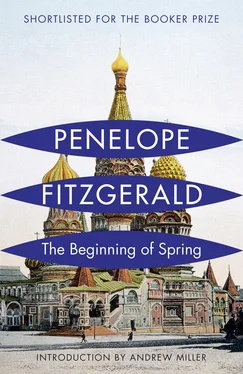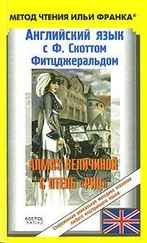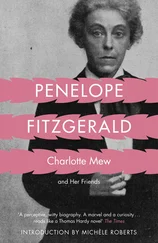His father, however, had no hesitation about the chief compositor he’d engaged, a capital fellow, a very steady worker, it would take a revolution to dislodge Yacob Tvyordov. Frank thought, when the time comes, I’ll see whether I want these people or not. I’ll make up my own mind when it comes to it.
In 1900 he transferred himself to Hoe’s of Norbury to get experience with more up-to-date machines. It was in Norbury that he met Nellie Cooper. She lived with her brother Charles, who was a solicitor’s clerk, and his wife Grace, at 62 Longfellow Road. It was a nice, substantial house, two entrance doors, the inner one with a stained glass panel, good new glass in art shades from Lowndes and Drury, representing the Delectable Mountains from the Pilgrim’s Progress, dining room and kitchen downstairs in the basement, sitting room opening on to a flight of green-painted iron steps which led into the garden, a bit of fencing to screen off the vegetables, three bedrooms on the first floor, one of them spare as Charles and Grace didn’t have any children. Frank had a room in a boarding house where, the landlady, probably unintentionally, as it seemed to him, was gradually starving him to death. He joined (as he had done in Manchester and Nottingham) the local choral society. At refreshment time (they were rehearsing, perhaps overrehearsing, Hiawatha ) he had to excuse himself to Nellie, who was helping to serve out, for taking more than one fish paste roll. Nellie asked him what his job was, whether he had to heave things about in the open air and couldn’t help getting up an appetite. Then, without listening very attentively to his answer, she said she had been teaching for four years and was due to take her qualifying exam for the certificate.
‘I’m twenty-six,’ she added, as though it might as well be said now as later.
‘Do you like teaching?’
‘Not all that much.’
‘You oughtn’t to go on with it then. You oughtn’t to try for the certificate. You ought to train to do what you want to do, even if it’s sweeping the streets.’
Nellie laughed. ‘I’d like to see my brother’s face.’
‘Does he worry about you?’
‘He’s doing all right, anyway. I suppose there’s no real need for me to work at all.’
‘I don’t know why you do it, then.’
‘It gets me out of the house, so I’m not under my sister-in-law’s feet and she doesn’t have to see me all day.’
‘Did she say that to you, Miss Cooper?’
‘No, she wouldn’t say anything like that. She’s a sufferer.’
Frank was struck by her way of looking at things. There was a tartness about it, a sharp flavour, not of ill-nature, but of disapproval of life’s compromises, including her own. The introduction meant that he was entitled to see her home from the draughty Jubilee Hall where the rehearsals had been called. Nellie had to help put away the Choral Society’s crockery. Then she came back in her coat, with her shoes in a water-proof bag. Frank, to establish his claim, took the bag from her. He always did everything quickly and neatly, without making a business of it.
‘If we were in Moscow now it would still be all frozen up,’ he said, going down the steps beside her.
‘I know,’ said Nellie. ‘But when you do things at school in geography you know them, but you don’t believe them.’
‘No, you have to see them for yourself. It makes you want to do that.’
‘Were you at school in Russia, then?’
‘Yes, I was,’ he said.
‘Well, if you’d read about Norbury while you were there, tell me honestly, would you have wanted to come and see it?’
‘I would,’ Frank answered, ‘if I had known I was going to be in such good company.’
She ignored this, but Frank felt satisfied. He asked her what she thought of Hiawatha . She told him that the composer lived in Croydon, not so far away, and this was supposed to be his favourite among all his pieces. ‘He christened his son Hiawatha, you know.’
‘But what’s your opinion of the music, Miss Cooper?’
‘To be honest, I don’t care so very much for music. I can hold a part all right, but only as long as I’m with a lot of others. I don’t know how I got through my sight-singing test when I came to join the society. I’ve often wondered about that. Dr Alden, that was the old choirmaster, didn’t hardly seem to listen. Perhaps he’d been drinking.’
‘Well, but there you are again. Why do you come to rehearsals, if you don’t care about them?’
It was the same reason – to get out of the house, to get out of the way of her sister-in-law, who, when Frank met her, seemed harmless enough, but harmlessness, as he knew, could be a very hard thing to bear. When he went to Longfellow Road to call for Nellie, Grace Cooper would fuss over him and ask him whether his landlady was treating him right. She told him to leave his shaving mirror in the bed during the day and if by the evening it was clouded over that meant that the bed was damp, and he had a right to complain about it at the Town Hall. Better take the mirror along with him, to show to the authorities. Frank got the notion that Grace always talked about damp.
Several times he was asked to stay to supper, and they sang hymns afterwards at the piano. Frank realized then that Nellie had told the truth about her voice, and he admired her for telling the truth.
The trouble was that he was still only training. His lodgings and laundry cost him twelve shillings and five-pence a week, and by Saturday he was hard up. ‘I know how you’re placed,’ said Nellie, ‘I’ll pay my share.’
‘I’m not sure I could agree to that,’ Frank said.
‘You’re afraid I’ll take out my purse and lay it on the table and rattle it about, getting out the money. Don’t get that idea into your head. Just as we go out, before we ever get out of the house, I’ll give you something for my half. That way there can’t be any awkwardness. It’s called Dutch treat, you know. What’s that in Russian?’
There was no Russian word for it. ‘Students, perhaps,’ said Frank, ‘I’ve seen them empty out their pockets at the beginning of the evening and put all the money they’ve got in the middle of the table.’
‘That’s not Dutch treat,’ said Nellie.
Once he had his training certificates, he had reasonably good prospects to lay before her. He felt that he could assume that she wouldn’t be too distressed at leaving her family and friends, still less at getting out of Norbury. If he wanted to go ahead with it, he ought to speak to Charlie, explaining in more detail about the firm and his prospects. He did want to go ahead with it, and after fixing things up with Nellie, he did speak to Charlie. No worry about a ring, because he had brought with him a ring belonging to his mother which his father had bought for her at Ovchinikof’s in Moscow. It was a Russian triple knot, in three different colours of gold, made so that the three circlets were separate but could never be taken apart. They slid and shone together on Nellie’s capable finger. At the choral society it was thought pretty, but foreign-looking. ‘When your mother gave it you, she must have expected you to find someone,’ said Nellie. ‘Was she ill?’
‘I don’t think so, she certainly didn’t say so?’
‘What were the girls like in Nottingham?’
‘I can’t remember. Very moderate, I think.’
‘I daresay they fancied you because you were tall?’
‘They might have done.’
‘Did you fall in love with any of them when you were in Manchester, or when you were in Nottingham, and offer them this ring, and get turned down?’
‘No Nellie, I didn’t.’ They were walking in Norbury Park. The air and the trodden earth and grass breathed out moisture. Grace had warned them that they would find it very damp.
Читать дальше












